Why UNE for Your B.A. in Psychology
Experience the best of both worlds. As part of a university nationally ranked as having “High Research Activity,” (Carnegie, 2019), we provide access to all the resources you would expect from a large research institution — but at UNE, you are never just a number. Our Psychology majors benefit from close working relationships with faculty and one-on-one research mentoring.
- Broad exposure to the many facets of Psychology
- Diverse concentration areas
- Hands-on curriculum
- Internships
- Collaborative research experiences with faculty
- Personal attention from faculty
- Small class sizes
- Global opportunities
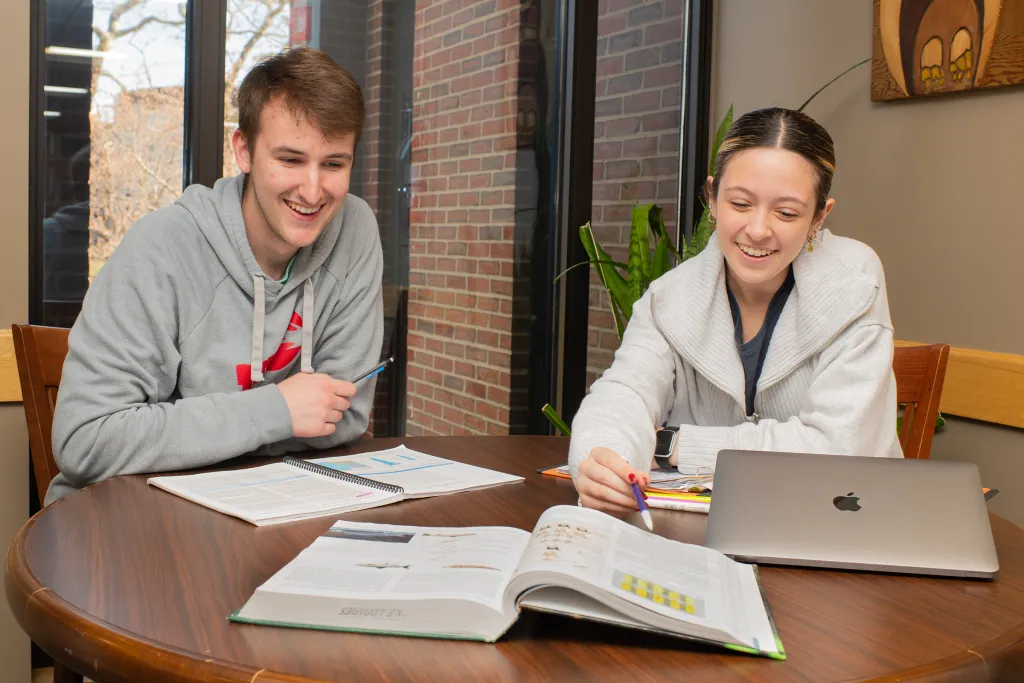
What Will You Study? Psychology Degree Curriculum Overview
B.A. in Psychology Courses
The following are just some examples of the exciting courses that our B.A. in Psychology offers:
- Social Psychology
- Developmental Psychology
- Abnormal Psychology
- Theories of Personality
- Memory and Cognition
- Biological Basis of Behavior
- Theories and Practice of Counseling
- Listening and Communication Skills
If you are interested in pursuing graduate education after you complete your psychology degree (e.g., a Ph.D. in clinical psychology, a Master of Social Work, or medical school), our faculty will assist you in pursuing your chosen path. Many students come to UNE with such goals and are admitted to graduate study.
The Business concentration challenges you to apply your psychological knowledge, research and internship skills, and critical thinking abilities to the business world in a variety of settings, including private or public organizations. This concentration helps prepare you for a career in organizational behavior, business and society relations, leadership, health economics, and social entrepreneurship.
The concentration in Business Administration provides you with a deeper understanding of the skills needed in management, marketing, and financial accounting and economics whereas, the Social Innovations and Entrepreneurship minor will help prepare you to solve real-world social problems using best practices from entrepreneurship and business. You will develop these critical skills through coursework, internships, and research opportunities. Students choosing to focus their studies in this area may wish to add a minor in Business Administration or a minor in Social Innovation and Entrepreneurship.
Careers
A degree in Psychology with a concentration in Business prepares you for a broad range of career possibilities in fields such as business and society relations, consultation, social entrepreneurship, business ownership, leadership, organization behavior, and health economy.
The Education concentration challenges you to apply your psychological knowledge, research and internship skills, and critical thinking abilities to a variety of issues relating to education and special education. This concentration helps prepare you for a career in educational environments.
The concentration in Education provides you with a deeper understanding of curriculum theory and design whereas, the Special Education minor will prepare you to pursue careers supporting individuals of all abilities through learning experiences designed to give you hands-on experiences and the latest knowledge on instruction in the field of special education. You will develop these critical skills through relevant coursework and will be expected to apply the knowledge and skills you have learned to real-world settings. Students choosing to focus their studies in this area may wish to add a second major in English, a minor in Education, or a minor in Special Education.
Careers
A degree in Psychology with a concentration in Education or Special Education prepares you for a broad range of careers, including school counselor, school psychologist, teacher, and special education teacher.
The General Psychology concentration offers the greatest level of flexibility and is designed to provide you with a foundation in the subfields of your choice, challenging you to apply psychological knowledge, research and internship skills, and critical thinking abilities to a variety of issues in psychology.
This concentration is excellent preparation for those interested in exploring the breadth of psychology and is flexible enough to provide good preparation for those thinking about working in human development, forensic psychology, law, and many other fields or those who want to be well prepared for graduate studies in a variety of areas.
The concentration in General Psychology provides a broad overview of the field of psychology while developing skills valued most by employers including communication, interpersonal, leadership, teamwork, and computer skills. You will develop these critical skills through coursework, internships, and research opportunities.
Careers
A degree in Psychology with a concentration in General Psychology prepares you for a broad range of careers, including academic or career counselor, human resource specialist, lawyer, researcher, writer/editor, event planner, administration, advertising, case management, employment and recruitment media, public relations, retail, sales, and human services.
The Mental Health concentration challenges you to apply your psychological knowledge, research and internship skills, and critical thinking abilities to a variety of issues facing individuals with mental health challenges. This concentration helps prepare you for a career within the social services and health care system in areas such as mental illness, addiction, social work, behavior analysis, personal growth, and development.
The concentration in Mental Health Rehabilitation provides you with a deeper understanding of the skills needed to work in a human service-related field while developing skills valued most by employers, including communication, interpersonal, leadership, teamwork, and computer skills. You will develop these critical skills through coursework, internships, and research opportunities. Students choosing to focus their studies in this area are encouraged to complete the Mental Health Rehabilitation minor in addition to the Psychology major.
Careers
A degree in Psychology with a concentration in Mental Health and Rehabilitation prepares you for a broad range of careers, including applied behavior analyst, counselor (addiction, mental health, trauma, family, personal growth, etc.), mental health services licensed psychologist, researcher, social worker, and therapist.
Curriculum
| Nor’easter Core Requirements* | Credits |
|---|---|
| Total Credits | 40 |
| Program Required Courses | Credits |
|---|---|
| PSY 105 – Introduction to Psychology | 3 – Fulfills Human Health Core |
| PSY 205 – Abnormal Psychology | 3 |
| PSY 225 – Psychology Statistics | 3 |
| PSY 250 – Lifespan Dev in Context | 3 – Fulfills Human Experience - Open Core |
| PSY 255 – Social Psychology | 3 |
| PSY 285 – Research Methods | 3 |
| PSY 300 – Psychology Internship I | 3 |
| PSY 365 – Biological Bases of Behavior | 3 |
| PSY 380 – Learning/Conditioning and Behavior Modification or ANB 384/384L – Animal Learning and Behavior w/Lab | 3–4 |
| PSY 383 – Memory and Cognition | 3 |
| PSY 405 – Special Topics Seminar | 3 |
| Four (4) PSY, NEU, or ANB electives (200-level or higher) | 12 |
| Total Credits | 45–46 |
| Open Elective Courses (as needed to reach 120 credits) | Variable |
| Minimum Total Required Credits | 120 |
|---|
*MAT 120 – Statistics is encouraged to fulfill the Nor’easter Quantitative Reasoning Core Requirement.
Elective Course Options
| Program Electives | Credits |
|---|---|
| ANB 275 – Intro-Tech in Animal Behavior | 3 |
| ANB 335 – Comparative Animal Behavior | 3 |
| ANB 362 – Animal Cognition | 3 |
| NEU 205 – Introduction to Neurobiology | 3 |
| NEU 205L – Introduction to Neurobiology lab | 1 |
| NEU 306 – Behavioral/Cognitive Neuro | 3 |
| NEU 306L – Behavioral/Cognitive Neuro Lab | 1 |
| NEU 410 – Neurobiology of Mental Illness | 3 |
| PSY 212 – Positive Psychology | 3 |
| PSY 215 – Psychology of Gender | 3 |
| PSY 218 – Fundamentals of Gerontology | 3 |
| PSY 226 – Motivation & Emotion | 3 |
| PSY 235 – Health Psychology | 3 |
| PSY 236 – Mental Health & Society | 3 |
| PSY 245 – Evolutionary Psychology | 3 |
| PSY 252 – Forensic Psychology | 3 |
| PSY 254 – Cultural Psychology | 3 |
| PSY 286 – Research in Psychology | 3 |
| PSY 290 – Developmental Psychopathology | 3 |
| PSY 295 – Listening/Communication Skills | 3 |
| PSY 305 – Special Topics | 3 |
| PSY 310 – Children and Stress | 3 |
| PSY 316 – Psychology of Consciousness | 3 |
| PSY 318 – Community Psychology | 3 |
| PSY 325 – Psychology of Aging | 3 |
| PSY 345 – Sports Psychology | 3 |
| PSY 350 – Theories of Personality | 3 |
| PSY 364 – Soc and Emotion Dev in Childhood | 3 |
| PSY 370 – Drugs, Society, and Behavior | 3 |
| PSY 375 – Trauma and Health | 3 |
| PSY 400 – Psychology Internship II | 1–12 |
| PSY 410 – Theory/Res/Pract Couns Psych | 3 |
| PSY 430 – Intro to Art Therapy | 3 |
| PSY 450 – Fourth-year Thesis | 3 |
| PSY 486 – Adv Research in Psychology | 1–9 |
Please note: While some courses can fulfill both core and program requirements, the credits earned do not count twice towards the minimum total required credits for the degree.
To learn more about the program visit the Catalog.
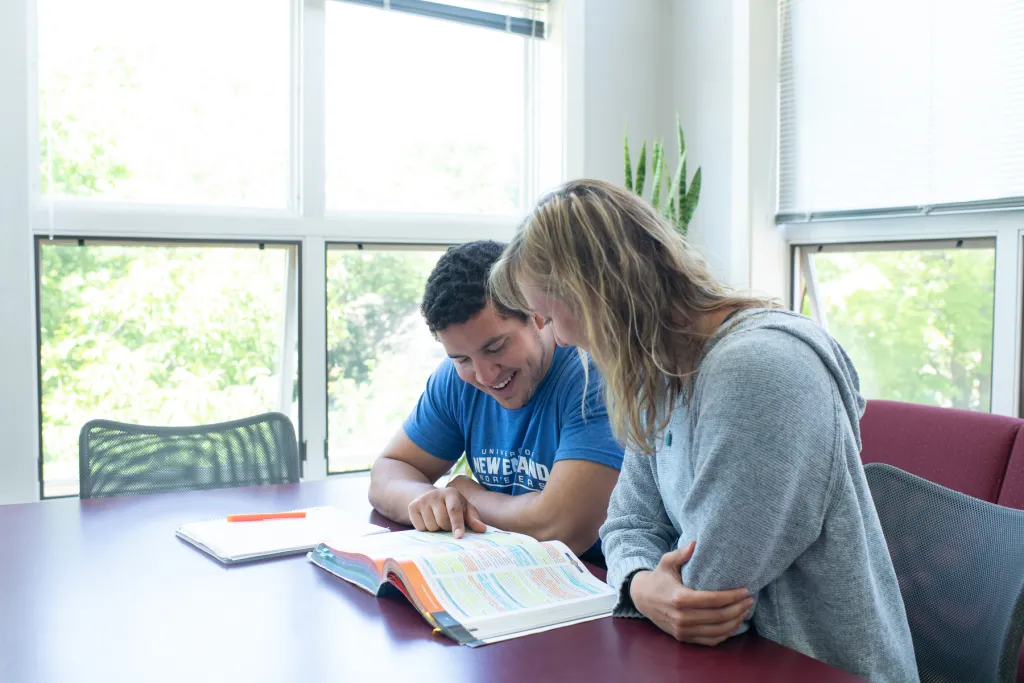
Career Paths for Psychology Majors
With the knowledge you gain from your coursework, the critical thinking skills you develop through research, and the life skills you acquire from internships and close working relationships with faculty and peers, you will be well on your way to an exciting future in psychology.
Our graduates have pursued many fascinating careers, including:
- Therapist/Mental Health Counselor
- Behavior Analyst
- Researcher
- Marketing/Advertising Specialist
- Human Resources Specialist
- Teacher
- Social Worker
- Counselor (school, life skills, family, career, substance abuse, grief)
Career Advising for B.A. in Psychology Students
Whether you have a specific career goal in mind or a vague idea of the field that interests you, Career Advising is here to help you plan your next step.
B.A. in Psychology Degree Facilities
As a student in our Psychology program, you benefit from UNE's extraordinary resources.
Teaching Classrooms
We have dedicated teaching classrooms that allow you the opportunity to work closely with faculty and peers in hands-on activities.
Psychology Labs
In these spaces, you will have the opportunity to work on a variety of projects involving Psychology faculty members. Projects have included memory processes underlying reading comprehension, how explicit and implicit self and relationship processes influence how people navigate the ups and downs of daily life.
Neuroscience Labs
Our faculty members with expertise in the neurosciences have labs dedicated to their research into topics concerning learning and memory, cognition and development, psychopharmacology, and drug addiction and pain.
Animal Behavior Labs
In these labs, you have chances to work with faculty on a variety of research projects, such as ones investigating conservation genetics, wildlife conservation, and how pharmaceuticals, endocrine-disrupting chemicals, and other pollutants affect the behavior of the fish.
Centers for Excellence
Center for Excellence in Neuroscience
The Center for Excellence in the Neurosciences sponsors research opportunities for Neuroscience majors.
The Center organizes a Neuroscience Summer Scholars Program, supporting Neuroscience majors with their summer research projects.
Summer scholars attend the summer seminar series, which brings in researchers from around the world, and present their experimental results at a research fair held at the conclusion of the summer.
Center for Excellence in Aging and Health
The Center for Excellence in Aging and Health promotes innovative, interprofessional research and programming to extend healthspan, enhance well-being, celebrate personal legacies, and disseminate professional best practices for the benefit of aging adults wherever they call home.
Psychology faculty are active parts of the center and students working with these faculty have the opportunity to explore issues of aging.
Center of Biomedical Research Excellence for the Study of Pain and Sensory Function
Center of Biomedical Research Excellence for the Study of Pain and Sensory Function, dedicated to understanding the neurobiology of pain and the development of novel therapies.
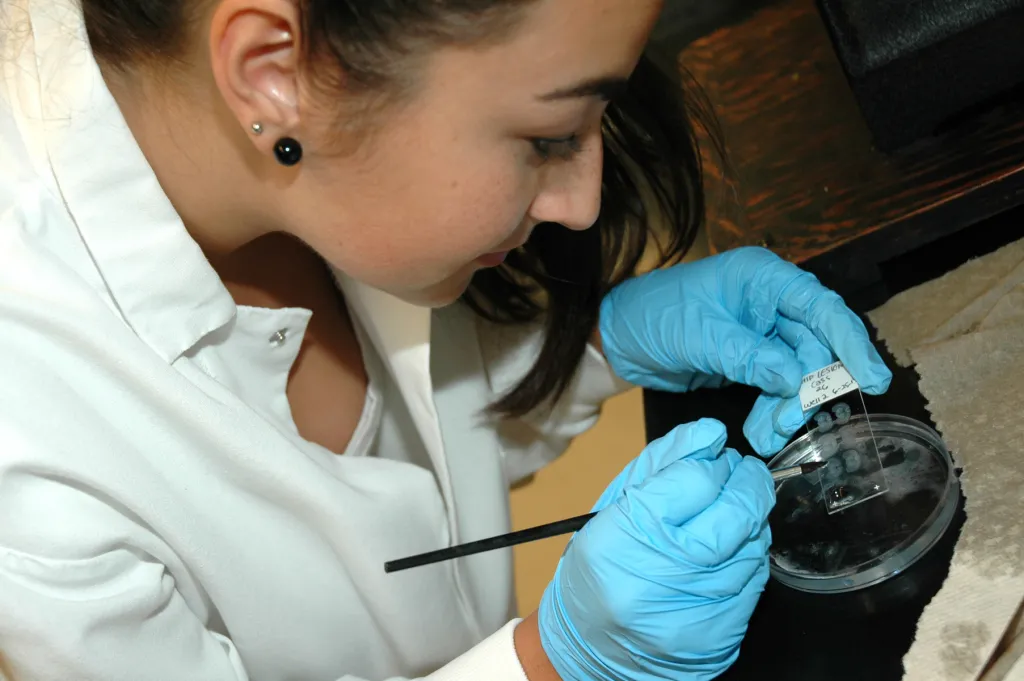
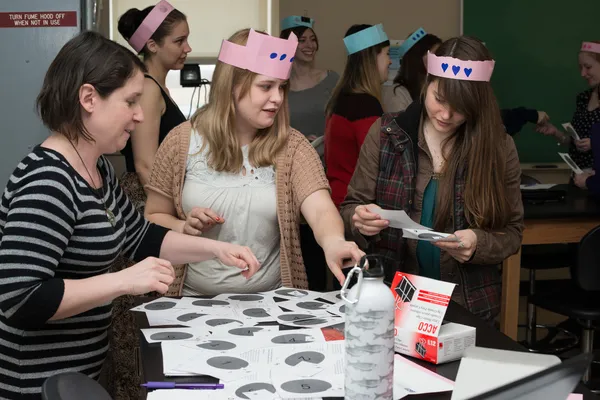
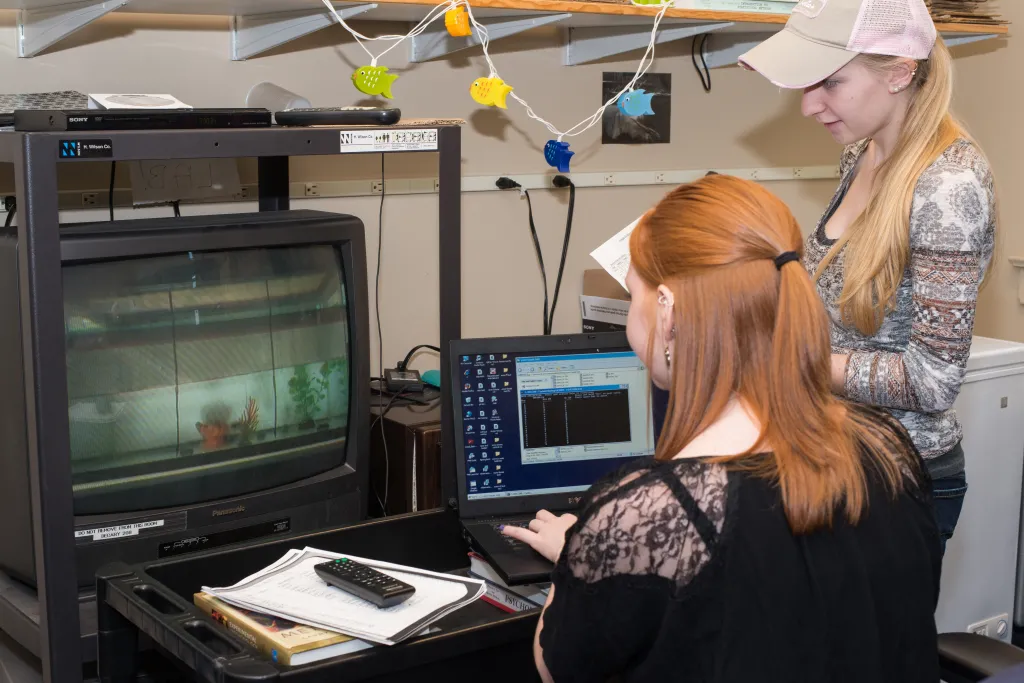
Experiential Learning in the Bachelor’s Degree in Psychology Program
Research Opportunities for Psychology Majors
As a student in the Psychology program, you complete at least one research project as part of our Research Methods course. You may also choose to become more deeply involved in research in one of our faculty-led laboratories.
The field of psychology is broad and diverse. We are fortunate to have faculty members with expertise in a variety of areas including human development (across the lifespan); clinical/counseling; cognitive, neuroscience, and social psychology.
At UNE we touch upon all facets of psychology with special focuses in behavioral neuroscience, clinical/counseling, memory and cognition, opioid pharmacology, and social psychology. We encourage you to learn more about the different opportunities available, some of these are highlighted below.
Faculty in our Animal Behavior program are currently performing research in the following areas:
- Zach Olson, Ph.D., behavioral ecology and wildlife conservation
- Margaret Stanton, comparative social behavior, maternal behavior, and offspring development
- Mike Burman, Ph.D., negative emotionality and pain
- Glenn Stevenson, Ph.D., drug development and opioid pharmacology
- Jennifer Stiegler-Balfour, Ph.D., memory processes underlying reading comprehension
- Jennifer Stiegler-Balfour, Ph.D., memory processes underlying reading comprehension
- Julie Peterson, Ph.D., how explicit and implicit self and relationship processes influence daily life
Learn about Psychology Research
Internships for Psychology Majors
Internships provide critical training and work experience. They help you explore career options and often lead to jobs after graduation.
As a Psychology degree student, you complete at least one internship during the junior or senior years. Working in conjunction with your faculty advisor and the psychology internships coordinator, you identify a site, then take the theories, practices, and knowledge you’ve gained in the classroom out into applied settings.
We have a well-developed network of sites that have accepted our students into their organizations and work to match you to an experience that fits your interests.
Internship Sites
Our recent Psychology majors have pursued internships at the following sites:
- Back to Basics, Behavioral Healthcare
- BerryDunn Consulting
- Caring Unlimited
- Carlisle Academy
- Center for Grieving Children
- Creative Work Systems
- Department of Health and Human Services - Office of Child and Family Services (PDF)
- Through These Doors
- Morrison House
- Neurosurgery and Spine Associates
- Parent Resource Center
- Planned Parenthood
- River Ridge
- Saco River Health Services
- Samuel L. Cohen Adult Day Care Center
- Seeds of Hope, Biddeford
- SMHC Therapy Clinic
- Spring Harbor Hospital
- Sweetser Crisis Stabilization Unit
- The Root Cellar
- UNE Girls' Field Hockey Team
- UNE Men's Hockey Team
- Violence No More
- Volunteers of America
- Waban
- Women, Work, and Community
- Woodfords Family Services
- Biddeford Head Start
- Biddeford Primary School
- Center for Autism
- Carlisle Academy
- Center for Grieving Children
- Connections for Kids
- Department of Health and Human Services - Office of Child and Family Services (PDF)
- Kennebunk Consolidated Elementary School
- Kids Free to Grow
- Kidz Go Eco Preschool
- Loranger Middle School (Old Orchard Beach)
- Northern York County YMCA Day Care
- Spring Harbor Hospital
- Spurwink
- St. Louis Child Development Center
- Sweetser Crisis Stabilization Unit
- Sweetser Residential Treatment Services
- The School at Sweetser
- Sweetser Ricker Farm
- Volunteers of America
- Waban
- Woodfords Family Services
- Artvan
- Back to Basics, Behavioral Healthcare
- Biddeford Intermediate School
- Big Brothers, Big Sisters
- Carlisle Academy
- Center for Grieving Children
- Department of Health and Human Services - Office of Child and Family Services (PDF)
- Loranger Middle School (OOB)
- Spring Harbor Hospital
- Spurwink
- Sweetser Crisis Stabilization Unit
- Sweetser Residential Treatment Services
- Sweetser Ricker Farm
- The Root Cellar
- The School at Sweetser
- Volunteers of America
For more information, contact Linda Morrison, Ph.D., psychology internship coordinator at (207) 602-2865 or lmorrison@une.edu.
Clubs and Activities for Psychology Majors
As a Psychology student, you have the opportunity to participate in different student organizations specifically geared toward people with a passion similar to your own
The Animal Behavior Club is open to all members who want to get involved with animals, learn about animals, and get the community pumped about animals.
If you are a UNE student and would like to become a member of the Animal Behavior Club, please emailzolson@une.edu.
Faculty Advisor

The Animal Welfare Judging Team participates in the bi-annual Animal Welfare Judging and Assessment Competition (AWJAC). Through team participation, students learn to apply animal welfare theories and develop skills in public speaking and argumentative logic.
Faculty Advisor
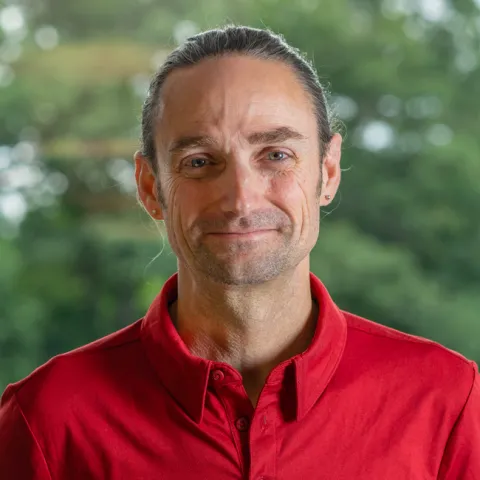
This student organization works with the neuroscience department to promote neuroscience as a major and promotes opportunities for you to know more about the neuroscience field. It also helps connect you with undergrad research opportunities.
If you are a UNE student and would like to become a member of the Psychology Club, contact mrice4@une.edu.
Faculty Advisor
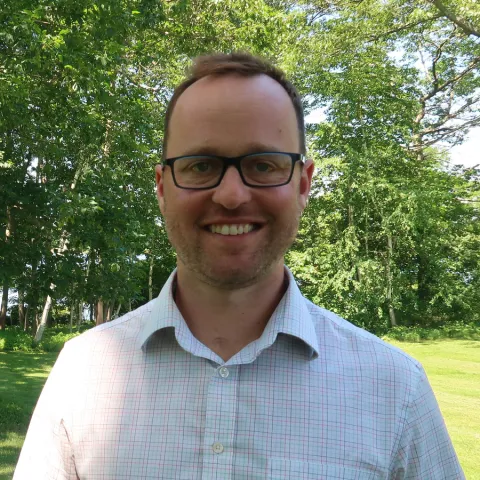
The Pre-vet Club is for anyone who has an interest in animals, including those with hopes of applying to vet school in the future. The club serves those who would like guidance in the vet school application process, as well as those who just want to learn more about animals. We volunteer, get guest speakers, hold workshops, and more.
Faculty Advisor

The mission of the Psychology Club is to create a community of students who share a common interest in the discipline of psychology and its broad application while also providing students with connections to Psychology faculty and opportunities for social engagement.
We welcome Psychology majors and minors as well as anyone else who has an interest in Psychology. We hold regular club meetings and put on campus-wide events that engage members of the larger academic community at UNE in activities that involve psychology.
Past events have included:
- NAMI: Five Stories of Hope and Resiliency
- Relay For Life: We make a team and fundraise annually
- Annual faculty student socials
- Brain Fair
- Out of the Darkness Walk
- Save the Waves
More events are added every year.
How to Join
If you are a UNE student and would like to become a member of the Psychology Club, please contact Kana Colarossi at kcolarossi@une.edu. You are welcome to come to a meeting prior to joining, — you do not have to be a member to attend.
Faculty Advisor

Founded in 1929, PSI CHI is a member of the Association of College Honor Societies and an affiliate of both the American Psychological Association (APA) and the American Psychological Society (APS).
With the stated mission of encouraging, stimulating, and maintaining excellence in scholarship in the science of psychology, PSI CHI has grown to become one of the largest and most successful honor societies in the world with more than 1,100 chapters and 537,000 members. UNE's chapter was formed in 2010.
For more information, visit the official PSI CHI website or contact the UNE chapter's faculty advisor, Dr. Jennifer Stiegler-Balfour at jstiegler@une.edu.
Become a Member
To be eligible for membership in PSI CHI, you must:
- Be a major or minor in UNE's Department of Psychology
- Be at least a second-semester sophomore
- Have completed 9 semester hours of psychology and/or neuroscience courses
- Rank in the top 35 percent of your class in general scholarship
- Possess a minimum GPA of 3.0 (on a 4.0 scale) in both psychology and neuroscience classes and cumulatively
- Maintain a high standard of personal behavior
Resources
Announcements
APAGS/Psi Chi Junior Scientist Fellowship
The intent of the Junior Scientist Fellowship is two-fold: to provide funding for a first-year or second-year graduate-level project and to provide constructive feedback to select applicants to increase their chances of achieving success on future National Science Foundation (NSF) Graduate Research Fellowship applications.
The primary intent is to recognize outstanding research-oriented students who are entering their first year (or the first semester of their second year) of graduate study and to help them get their research off the ground. Graduate students from research-based psychology and neuroscience programs are eligible to apply.
The second intent of this fellowship is to provide written feedback to select applicants. Many students apply for the NSF Graduate Research Fellowship without ever having applied for a research fellowship. By providing feedback to select applicants, this program encourages them to strengthen their NSF graduate fellowship applications.
Funds for this $1,000 fellowship must be used to support direct research costs. These funds can be used to pay participants, purchase essential equipment or software, acquire books or instructional manuals critical to one's line of research, pay fees to publish in open-access journals, or for any other direct research cost. The funds cannot be used for indirect costs such as travel, personal computers, or class textbooks. The funds can be used for any direct research costs in a student's first year (or in the second year, if submitting in the summer prior to one's second year) of graduate school and do not need to be limited to the research discussed in the Research Essay.
Special APS Membership Offer for PSI CHI Student Members
The Association for Psychological Science is offering a reduced APS Students Membership rate for PSI CHI student members. Membership includes subscriptions to four APS journals, discount rates for the APS annual convention, and other benefits. This offer is good for new memberships only. To take advantage of this offer, use the PSI CHI promotional code PSCH at www.psychologicalscience.org/join.
Apply Today
Ready to begin your future in UNE’s B.A. in Psychology degree program?
Bachelor of Arts in Psychology FAQ
What is a psychology major?
In a psychology program, undergraduate students learn about how and why people behave, think, and feel the way they do. Psychology is a major that prepares students for graduate-level programs in business, education, law, medicine, and psychology. It is also a customizable major that can apply to many careers with or without a graduate degree. Students learn basic methods to conduct psychological research, reasoning, and problem-solving, and all students are required to take a supervised internship.
UNE students who major in psychology will both have an opportunity to learn about current knowledge in the field broadly and to select electives that will allow them to learn more about specific specialty areas. We want to make sure that when you finish our program, you not only know what you like but also have useful skills for your future career or advanced studies (like going to graduate school for psychology or other health fields).
Learn more about the Bachelor of Arts (B.A.) in Psychology at UNE
Additionally, UNE offers Minors in Psychology and Mental Health Rehabilitation. The Psychology Minor gives students a thorough introduction to psychology while also allowing them to study something else. It includes two required courses and then allows you to select four electives within the field to build meaningful, deep knowledge. This gives students a basic introduction to the field as a way of complimenting the major field of study. The Mental Health Rehabilitation Minor allows students majoring in psychology and other fields to take six required courses and earn MHRT/C certification through the state of Maine. This accredited program increases marketability in entry level mental health jobs immediately upon graduation.
Is a psychology degree a B.A. or B.S.?
When selecting an undergraduate psychology degree, you might have two options – a Bachelor of Arts (B.A.) or a Bachelor of Science (B.S.) in Psychology. Before you decide, think about which one is better for you by weighing the differences and similarities.
Both the B.A. and B.S. in psychology qualify students for entry into psychology graduate programs. They're equally challenging and take the same time to finish. The main difference is the kinds of classes they offer and what they prepare you for in your future career.
- A B.A. in psychology has a wider choice of different courses.
- A B.A. puts more emphasis on subjects like humanities and social sciences, while a B.S. highlights research and data skills.
- A B.A. can lead to more learning or jobs outside of psychology, while a B.S. gets you ready for more study or a job in psychology.
UNE offers a B.A. in Psychology. We structure our degree program to teach students the core concepts and skills related to psychology. Students can choose to learn more about certain areas such as mental health, education and psychology, psychology and business, and general psychology.
What jobs can you get with a psychology degree?
A psychology degree is often the first step for those who want to practice psychology, therapy, and counseling but it is important to note that psychology majors have the flexibility to pursue many different careers. For example, many professionals working in the education system, business, lawyers and medicine pursue a psychology degree in college. Our psychology program at UNE prepares students well for both careers right out of college and graduate studies.
Possible careers for psychology majors that don't require a graduate degree or license include school guidance counselor, law enforcement and corrections officer, human resources manager, marketing or advertising manager, research assistant, and some nonprofit positions.
Students who graduate from UNE’s psychology program have gone on to pursue many fascinating careers, including therapist/mental health counselor, behavior analyst, researcher, marketing/advertising specialist, human resources specialist, teacher, social worker, and counselor (school, life skills, family, career, substance abuse, grief).
There are many job opportunities for those interested in a rewarding career in the mental health field and beyond. Some jobs include clinical psychologist, lawyer, mental health counselor, marketing expert, human resources specialist, school psychologists, industrial organizational psychologist, forensic psychologist, and more. Many of these jobs will require an advanced degree.
UNE students have the ability to work with our Academic and Career Advising Center. It doesn’t matter if you have a clear career goal or just a general interest in a field.
What classes do psychology majors take?
Psychology studies begin with fundamental courses like general psychology, research methods, and statistics. Lab work, such as in psychology as a natural science, is part of the psychology major. Thanks to the diversity of backgrounds our faculty in the psychology program have we offer a variety of classes and/or research opportunities that students can pursue with a faculty mentor. A complete psychology major often involves math, social science, and physical science courses for a well-rounded education. Many of our students are interested in careers in the following areas and we encourage our psychology majors to explore adding a minor in these areas to customize their degree:
- Mental Health – Prepares students for careers as behavior analysts, counselors for different areas, licensed psychologists for mental health services, researchers, social workers, and therapists.
- Business – Gets students ready for many jobs in areas like business relations, consulting, starting a business, leading, how organizations work, and health economy.
- Education – Prepares students for a broad range of careers, including school counselor, school psychologist, teacher, and special education teacher.
- General Psychology – Gets students ready for a broad range of careers such as counselor, HR specialist, lawyer, writer, event planner, administrator, advertiser, manager, PR, sales, and helping people.
UNE’s B.A. in Psychology offers exciting courses including:
- Social Psychology
- Developmental Psychology
- Abnormal Psychology
- Theories of Personality
- Memory and Cognition
- Biological Basis of Behavior
- Theories and Practice of Counseling
- Listening and Communication Skills
- Trauma and Health
- Developmental Psychopathology
- Psychology of Aging
What are the major specialties in psychology?
Psychology is a broad discipline with a number of unique and distinctive specialties, each one dealing with specific psychological areas within the study of the mind, brain, and behavior. The American Psychological Association (APA) goes into more detail about the major specialties in psychology.
At UNE, we touch upon all facets of psychology with special focuses on developmental and aging, behavioral neuroscience, clinical/counseling, memory and cognition, opioid pharmacology, and social psychology. We designed our program to expose you to core concepts and skills related to psychology, while also enabling you to identify and focus your studies on a specific discipline such as mental health, education and psychology, psychology and business, and general psychology.
How long does it take to get a psychology degree?
It takes about four years for a full-time student to earn a Bachelor's degree in Psychology. A Master's in Psychology typically takes one to two years. Doctor of Psychology (PsyD) and Ph.D. in Psychology programs usually takes five years or more.
When thinking about how long you'll study psychology, remember it's not just about finishing your Bachelor's degree. If you plan to work as a counseling psychologist, school psychologist, researcher, or teacher, a master's degree is usually needed. For treating clients as a licensed psychologist, an advanced degree in clinical psychology is necessary.
There are some careers for psychology majors that don't require a graduate degree or license. These include school guidance counselor, law enforcement and corrections officer, human resources manager, marketing or advertising manager and research assistant.
UNE’s B.A. in Psychology requires a minimum of 120 credit hours. This includes:
- 42–46 credits of College of Arts and Sciences (CAS) core curriculum
- 42–43 program minimum required total credits
- Open elective courses as needed to reach 120 credits
How much does a psychology degree cost?
The cost of a four-year psychology bachelor's degree is influenced by:
- Scholarships
- The kind of school – public in-state or private.
- Extra expenses like housing, food, and other charges.
Learn more about the tuition and fees for undergraduate degrees at UNE
UNE is Maine's biggest private university. We give scholarships based on merit, regardless of your chosen major. We're dedicated to making education affordable. Some important facts:
- 98% of undergraduates receive merit scholarships.
- Our students receive about $26,000 in award packages on average.
- We award $42 million in scholarships every year.
Learn more about about the grants and scholarships you can get at UNE
A degree in psychology is worth it because it makes you more marketable to prospective employers who want to hire people with strong communication and people skills. The skills you develop as a psychology major are transferable and can be used in any career field.
Which colleges have the best psychology degree program for me?
Many students want to major in psychology because they have an interest in helping others or pursuing a career in counseling or therapy. What sets UNE apart from a lot of psychology programs in New England is that we offer the best of both worlds. We are a university nationally ranked as having “High Research Activity,” (Carnegie, 2019), meaning we provide access to all the resources you would expect from a large research institution but with small class sizes.
There are many factors to consider when choosing which college or university has the best psychology degree program for you.
Faculty
Determine the psychology faculty that aligns with your interests, whether it's human development, counseling, cognitive psychology, or social psychology. See if their research interests align with yours.
Psychology students at UNE receive mentorship from nationally and internationally known faculty at UNE. Several of our faculty members have research laboratories that offer undergraduate research experiences throughout the academic year. Additionally, UNE provides an opportunity for you to apply for research funding through the Summer Undergraduate Research Experience (SURE) program to work with a faculty member on research during the summer. Through faculty-mentored research and hands-on internships, the Psychology major at UNE provides big-school opportunities in a small school setting in New England.
Psychology is very broad and diverse, and UNE is fortunate to have faculty members with expertise in a variety of areas including human development (across the lifespan), clinical/counseling, cognitive, neuroscience, and social psychology. Our small classes allow for personal attention and collaborative research with faculty.
Meet faculty and professional staff in the School of Social and Behavioral Sciences
Curriculum
Evaluate the curriculum based on your preferences, including areas like human development, counseling, cognitive psychology, or social psychology plus opportunities for psychology research and internships.
UNE has developed a psychology curriculum that combines hands-on classroom instruction with on-campus research experiences, and internship opportunities in the greater Portland area that prepare you for a broad range of career options in the field of psychology.
Notable experiential learning highlights include:
- Internships – As a Psychology student, you'll be required to do a supervised internship in your junior or senior years. With help from your advisor and the internship coordinator, you'll choose a place to work and you will have a weekly class supervised by one of our faculty to discuss issues like professional development, career opportunities, and life after graduation. This required part of our curriculum lets you use what you learned in class in real-world situations.
- On-campus research experiences – In the Psychology program, you'll do a research project in the Research Methods course. You can also get more into research by joining one of our faculty-led labs.
We encourage students completing a psychology major to complete a minor area of study as well. Faculty advisors assist students in choosing a minor that aligns with their future plans. For instance, many psychology majors interested in counseling choose minors like mental health rehabilitation or art therapy (both available in our School of Social and Behavioral Sciences). Others looking to apply psychology in business opt for a minor in the College of Business.
Learn more about UNE's full Psychology curriculum
Career goals
Choose the psychology program that aligns with your career goals and aspirations. See what resources are available to help you plan your next steps.
Whether you are interested in pursuing a career in counseling, education, research, business, law, or some combination — UNE’s B.A. in Psychology offers the experience, research, and internship opportunities you need to become a leader in the field.
If you are interested in pursuing graduate education after you complete your psychology degree (e.g., a Ph.D. in psychology, a Master of Social Work, or medical school), UNE faculty will assist you in pursuing your chosen path. Many students come to UNE with such goals and are admitted to graduate study.
In addition, you can collaborate with our Academic and Career Advising Center whether you have a specific career path in mind or a general interest in a field.
Learn more about Career Advising at UNE
Location and environment
Consider the location and environment that best supports your psychology major journey.
UNE is Maine’s largest private university. We have three unique campuses that provide diverse learning opportunities. In Maine, two campuses in Biddeford and Portland offer renowned undergraduate, graduate, and professional programs. Additionally, our Tangier, Morocco campus hosts a unique semester abroad program for UNE students.
Learn more about UNE’s campuses and how you can visit us
Students in our Psychology program benefit from UNE's extraordinary resources:
- Teaching classrooms – special spaces where you can learn hands-on with faculty and peers.
- Psychology labs – places where you work with Psychology faculty on different projects. Some projects explore memory and reading, while others look at how our thoughts affect daily life.
- Neuroscience labs – Skilled faculty study topics concerning learning and memory, cognition and development, psychopharmacology, and drug addiction and pain.
- Animal behavior labs – You can team up with faculty for research. This could involve studying conservation, wildlife, and large mammal social behavior.
- Centers for Excellence – There are three related to our Psychology program:
- Center For Excellence In Neuroscience
- Center For Excellence In Aging And Health
- Center Of Biomedical Research Excellence For The Study Of Pain And Sensory Function
UNE has a well-developed network of internship sites that have accepted our students into their organizations and work to match you to an experience that fits your interests.
Follow our Facebook page to learn more about current happenings with the Psychology program
As a UNE Psychology student, you will have the opportunity to participate in different student organizations specifically geared toward people with a passion similar to your own:
- Animal Behavior Club – open to all members who want to get involved with animals, learn about animals, and get the community pumped about animals.
- Neuroscience Club – collaborates with the neuroscience department to encourage the neuroscience major and helps you explore the field. Also, connects you to chances for research as an undergrad.
- Psychology Club – welcomes Psychology students and anyone interested in Psychology. Holds regular club meetings and campus events to involve the UNE community in psychology-related activities.
- Psi Chi - the International Honor Society in Psychology, open to majors or minors in Psychology, Mental Health and Rehabilitation, Art Therapy, Animal Behavior and Neuroscience.
Financial aid
Consider whether the school you're interested in provides financial aid or scholarships to support your education.
A UNE undergraduate education is very affordable. Our tuition is 16% below the average tuition for private universities in New England. Plus, all incoming full-time undergraduate students at UNE will receive Merit Scholarships in amounts from $5,000 to $22,000 per year.
Learn more about grants and scholarships available to students at UNE
